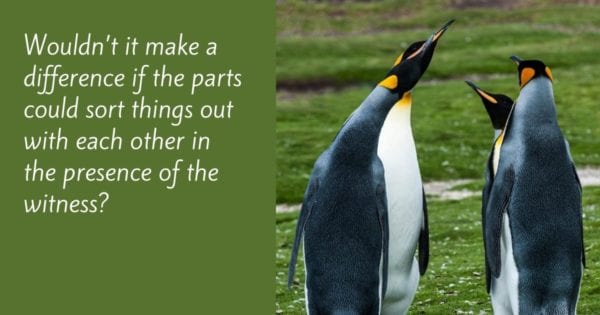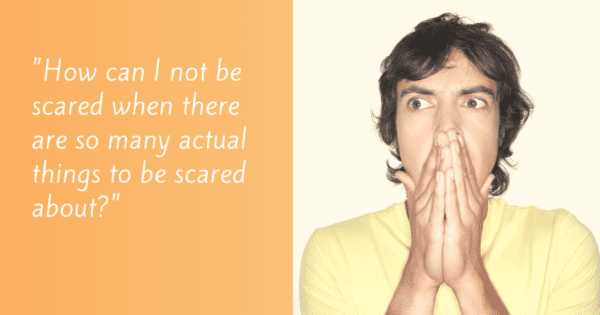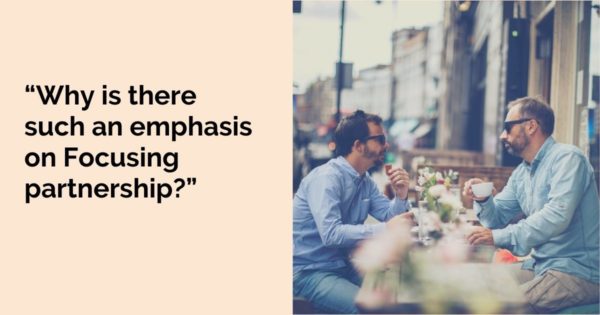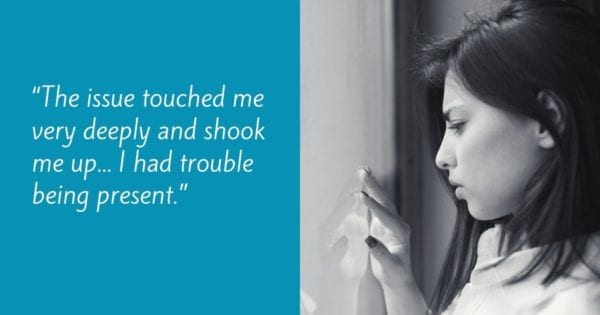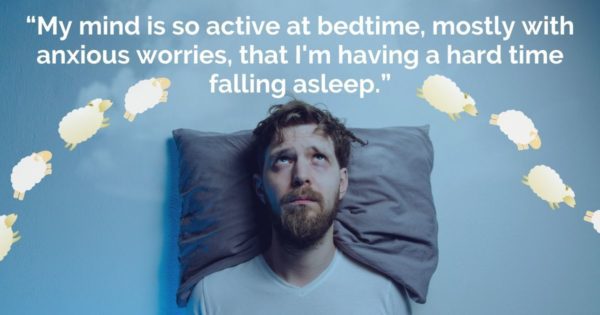“Are there limits to what I can get from Focusing?”
Marie writes:
I’ve seen you have written a book teaching psychotherapists to use Focusing methods in their therapy. I’m wondering what therapy can give me that Focusing can’t?
In your article on the difference between Focusing and therapy you write that the therapist can bring up topics that the client doesn’t talk about. Would that mean that we in Focusing can avoid topics? Doesn’t our inner world or felt senses bring up what needs to be heard? Are there limits to the healing or knowledge I can have from Focusing?
Dear Marie,
Focusing is a process that can happen in therapy. It’s more likely if the therapist knows Focusing, but even so, it can happen. That’s how Gendlin discovered it, by studying successful therapy.
So you are not asking about the difference between Focusing and therapy. You are asking about the difference between having sessions with a Focusing facilitator (or a Focusing partner) and being in therapy – and hopefully the therapist will also bring Focusing.
So what does therapy add? You point to one big difference: bringing up topics. In facilitated Focusing sessions and partnership, you are in charge of what you bring up. The facilitator will not suggest topics to you. That is a difference indeed. (Although some therapists won’t suggest topics either. Nothing can be said broadly about all therapy!)
And in fact our inner world does NOT necessarily bring up what needs to be heard. Especially in the more difficult areas of life, we get into tangles, and parts of us want to hide other parts. Barbara McGavin and I created Treasure Maps to the Soul because we needed to make Focusing effective for difficult areas that one would otherwise avoid. Among other things, Treasure Maps to the Soul is a format for bringing up the missing aspects of topics.
So I would say that Focusing with Treasure Maps to the Soul added is more effective than just Focusing! And that’s because Barbara McGavin and I have been working for nearly 20 years to make “maps” and processes which extend Focusing to the most challenging areas of life, like addiction, severe self-criticism, depression, and other challenges.
Psychotherapists can do other things than Focusing, and can highlight the relationship between you.
There are not big, sweeping, absolute differences between facilitated Focusing sessions, and therapy sessions with Focusing. Everything I can say about one will be true sometimes about the other.
But one of the big differences is that a Focusing facilitator is a specialist in Focusing. A psychotherapist, one hopes, will be able to incorporate a number of methods. If Focusing isn’t right for you, there are other things that can happen there. Also, psychotherapists are often more centered on the interpersonal relationship between the two of you, which can become a source of healing. This is true to some extent with Focusing guides but not nearly so much.
The individual differences between psychotherapists are probably more striking than what we can say about all psychotherapists. So it’s probably best to try out some people and find out how you feel. I think that after either a therapy session or a facilitated Focusing session, one should feel stronger, more hopeful, less confused, at least a little bit, and certainly one should feel liked by the other person, and seen.



